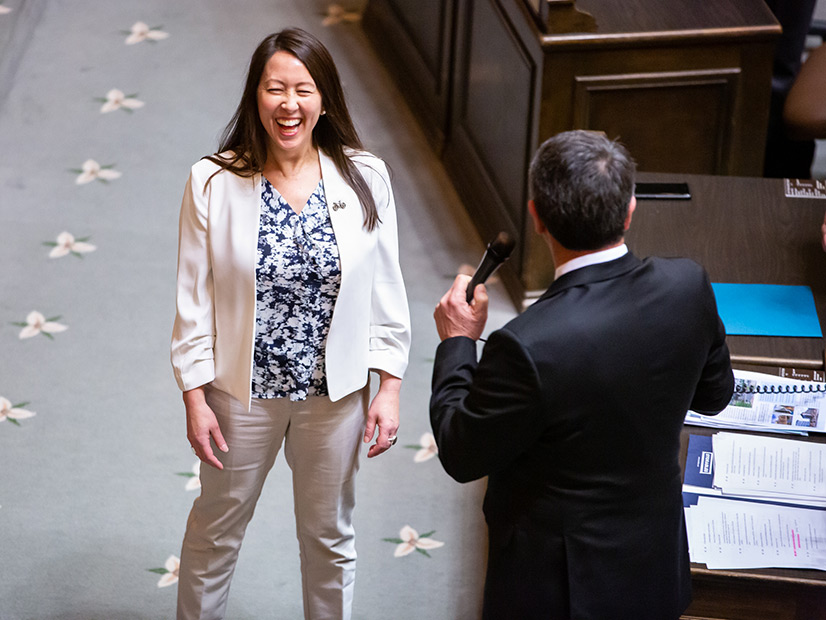A Washington legislator plans to revive her stalled bill to make climate change a consideration in land use planning by local governments.
House Bill 1099, sponsored by Rep. Davina Duerr (D), died in the Washington Senate’s Transportation Committee in late April after passing the Democratic-controlled House by a partisan 56-41 vote, as well as surviving the Senate’s Housing and Local Government and Ways and Means committees. (See Wash. Land Use Measure Nears Passage.)
“I wish I knew what happened,” Duerr told NetZero Insider, declining to speculate on the record.
She noted that her bill was sent to the Transportation Committee while a controversial low-carbon fuels bill was routed around that committee. The committee’s chair, Sen. Steve Hobbs (D), is a moderate who sometimes crosses party lines, and was an opponent of a low-carbon fuels bill, which the legislature ultimately passed. (See LCFS Bill Passes Washington Legislature.)
Washington’s Growth Management Act, which is almost 30 years old, regulates long-range land use planning for Washington’s city and county governments. It requires counties and cities to review and, if needed, revise their comprehensive plans and development regulations every eight years.
Duerr’s bill would have added climate change as a factor in the Growth Management Act and require comprehensive plans, development regulations and regional plans to support state greenhouse gas emission targets and improve resilience to climate impacts and natural hazards.
Her bill would have required climate change to be considered in land-use and shoreline planning for the largest 10 of Washington’s 39 counties and in cities of 6,000 people or larger. Washington’s 10 largest counties cover Puget Sound, Spokane, the Yakima River Valley and the Washington-side suburbs of Portland, Ore. A legislative memo said 246 county and city governments would be affected, including 110 jurisdictions outside the 10 most populous counties.
The bill called for the state Department of Commerce to set guidelines by 2025 on how those areas can reduce GHG emissions and vehicle miles traveled. Because 40 to 45% of Washington’s GHGs come from motor vehicles, traffic issues would become a major priority in those guidelines.
This week, Duerr said “of course” she would revive the bill in the 2022 legislative session, noting legislative rules allow last session’s House passage to stand with the Senate remaining the sole hurdle. She does not plan on changing the bill. However, she added: “I’m always open to good ideas for changes.”
Earlier in the session, state officials said California and Oregon already have climate change considerations installed in their local land-use planning laws.
In February, New Jersey Gov. Phil Murphy signed into law a similar bill that requires that state’s cities to include climate change in their land-use planning. The law requires cities to plan for coastal storms, shoreline erosion, flooding and effects on infrastructure such as roads and utilities.




